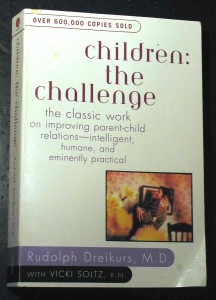The mortgage crisis in a nutshell
I invite you to view a brand new 54-minute video (embedded below) titled “Mortgage Crisis in a Nutshell.” The presenter is John Campbell, a St. Louis attorney and educator. I work with John at the Simon Law Firm in St. Louis, Missouri. We gained much of our experience in this area of law by litigating numerous suits for mortgage fraud on behalf of homeowners, both individual suits and class actions. Also on behalf of homeowners, we've defended many unlawful detainer suits (attempts to evict homeowners). We've both become passionate about this work as a result of witnessing firsthand that many homeowners have been victimized by unscrupulous and unrepentant banks. In this 53-minute video John presents the main aspects of the mortgage crisis that has devastated the U.S. housing market and the economy. Our goal is empower all who seek to better understand what went wrong with the American mortgage system. As you will see when you click on the above link, this video can be watched in chapters: I. The Big Picture and its Many Parts (:55) II. Banks Flood the Market with Subprime Mortgages (3:54) III. Banks, Securitize their Mortgages (10:05) IV. Banks Cry for a Bailout (13:57) V. Wall Street Malfeasance (16:54) VI. Foreclosures, Robo-Signing, Trustees and Conflicts of Interest (18:20) VII. MERS ("Mortgage Electronic Registration System) (33:45) VIII. The Mortgage System Used to Work (43:42) IX. Credits and Further Readings (52:43) We created this video because we were frustrated by the fact that it is difficult to find websites and other materials describing the modern mortgage system in terms that are accessible to both lawyers and non-lawyers. As a result, many of our friends and acquaintances (those outside of the mortgage law community) don’t understand the inter-relationships among subprime loans, ratings of mortgage-backed securities, MERS, the bailout and robo-signing. The failure to understand these things is making it easy for the entities that caused this crisis to conduct business as usual. Because this system is so difficult to understand, too many people think the crisis was entirely caused by “irresponsible borrowers.” The result is that our national dialogue is obsessed with the alleged need for less regulation instead of discussing how to change the system to make sure this never again happens. We’ve used simple terms and basic drawings in order to make an opaque system understandable. Though it is undoubtedly slanted toward our perspective as attorneys who represent homeowners, we’ve worked hard to keep it factual and fair-minded. We ask only one thing in return for the link to this video. To the extent that you find it helpful to your understanding of the mortgage crisis, please consider forwarding this link to anyone else you know who would benefit from viewing it. Our aim is to spread this video widely through email, list serves, Facebook, Twitter, blogs, websites other social media. We certainly invite comments, both at DI and at YouTube. If this video works for you (or if it doesn't), please let us know. Thank you.


